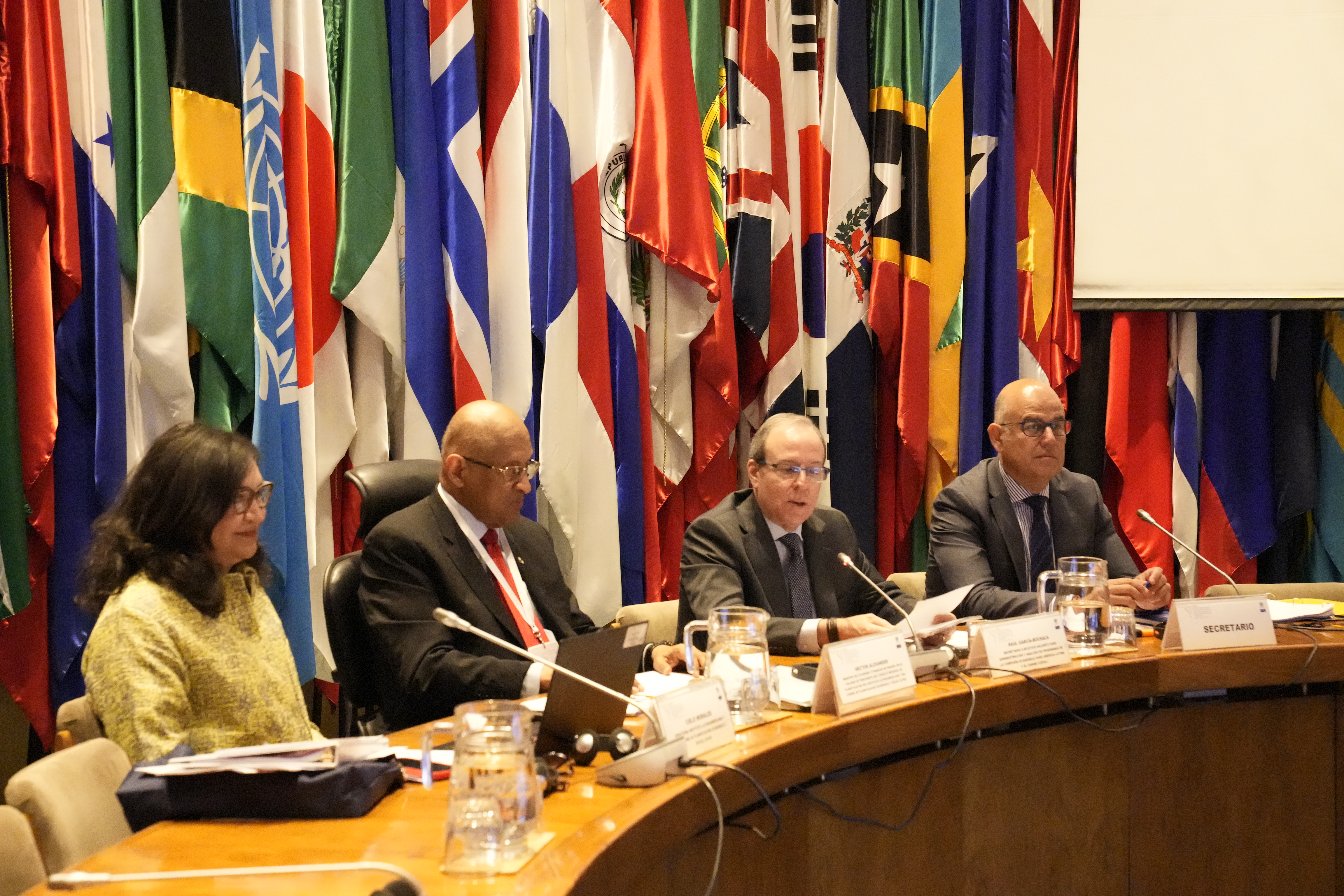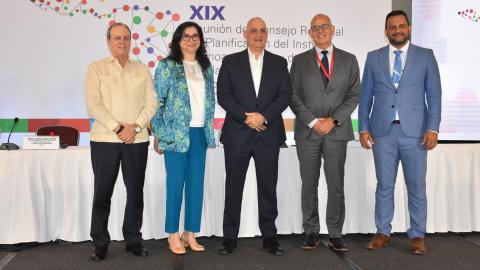News
Ministers, vice ministers and senior authorities recognized six decades of the Latin American and Caribbean Institute of Economic and Social Planning (ILPES), a subsidiary body of the Economic Commission for Latin America and the Caribbean (ECLAC) that has contributed to strengthening the capacities of the national planning and public management systems in the countries of the region. The Nineteenth Meeting of the Presiding Officers of the Regional Council for Planning was held at the regional commission’s headquarters in Santiago, Chile
The meeting was led by Héctor Alexander, Minister of Economy and Finance of Panama, in his capacity as President of ILPES Regional Council for Planning; Raúl García-Buchaca, Deputy Executive Secretary for ECLAC Programme Management and Analysis; and Cielo Morales, ILPES Director.
In his opening remarks, Minister Alexander underscored that the history of planning for development in the region is tied to the history of ECLAC and ILPES, which contributed to the creation of many of the region’s planning offices and trained planners in the ‘60s and ‘70s, when these capacities were essential for accessing resources and international cooperation.
“In this post-pandemic recovery scenario, with its huge global, regional and national complexities, planning continues to be essential to reduce improvisation in State actions, and to implement – with broad citizen participation – a development model that will generate growth and quality jobs, reduce structural gaps that create inequalities, strengthen productive capacities and benefit everyone, especially considering planetary limits,” he stated.
Raúl García-Buchaca, in his remarks, thanked the countries for their confidence in ILPES, “something that is evident in their daily work and their requests for guidance and advising, in technical support and training.”
He added that, since its creation in 1962 under Executive Secretary Raúl Prebisch, “ILPES has served as a forum for dialogue, the exchange of national and subnational experiences, and the strengthening of cooperation among planning authorities across Latin America and the Caribbean, to facilitate a deeper understanding of the challenges and opportunities in planning and public management in light of changing priorities over time.”
The Deputy Executive Secretary also underscored the significance of the Regional Council for Planning and its Presiding Officers, highlighting that this body and other ECLAC subsidiary bodies are important because they generate inter-governmental instances and spaces for strengthening multilateralism and cooperation, which in Latin America and the Caribbean, considered a medium-income region according to its per capita GDP, is particularly significant for driving the development agenda.
He added that the experiences of these countries reveal that the region is firmly committed to progress in the strengthening of its institutional frameworks to build a development model with shared regional and global objectives, to a collectively-created, participatory and inclusive vision of the future. This vision includes proposals of innovative, localized policies in the territory as the place where State actions come together, and focused on building a new public service that puts citizens at the center of State action so as to forge more collaboration in solving public problems between institutions, and between institutions and citizens.
“All these experiences show that the region is making broad use of planning tools to coordinate, negotiate and build consensus in country visions and development plans; to ration existing resources; and make the changes needed for a development style with greater equality and sustainability in light of the 2030 Agenda and its Sustainable Development Goals. For all of this, I reiterate ILPES’ unwavering commitment to continue down this path for many years to come,” he concluded.
After the opening remarks, ILPES Director, Cielo Morales, presented an activity report underscoring the participation of 4,239 people in the Institute’s training courses, and the consolidation of its online courses.
As part of the commemoration of the six decades of the Institute’s existence, Cielo Morales also presented the reference guide Planning for Development in the 60 Years of ILPES, created with support from ECLAC’s Hernán Santa Cruz Library. The guide is a compilation of the most significant publications, milestones and training activities over the 60 years of ILPES history. Published in Spanish, English and Portuguese, this living resource for research and study systematizes the history of ILPES and planning for development in Latin America and the Caribbean.
At the Nineteenth Meeting of the Presiding Officers of the Regional Council for Planning, participating countries approved a series of Agreements that, among other points, recognize the consolidation and progress made by the Regional Observatory on Planning for Development in Latin America and the Caribbean in updating information related to the institutional framework of national planning systems and in the compilation, systematization and analysis of planning instruments in the specific areas of sustainable mobility in cities and territories.



